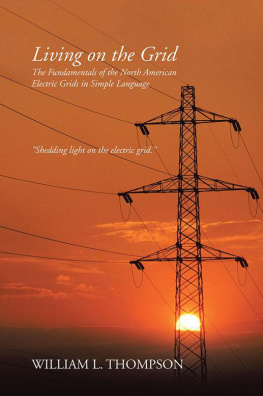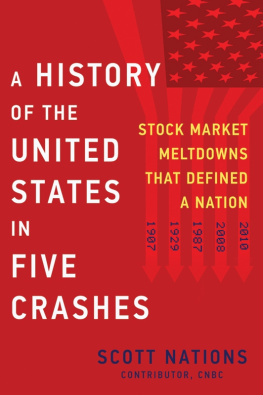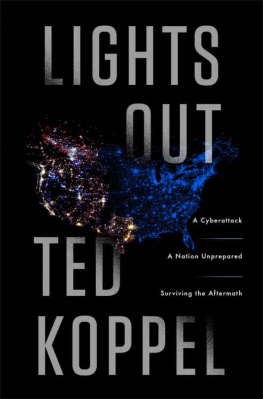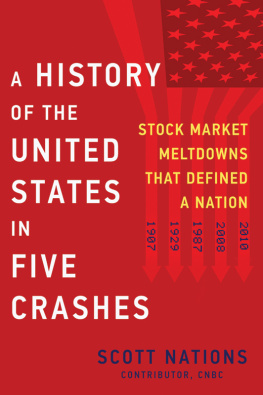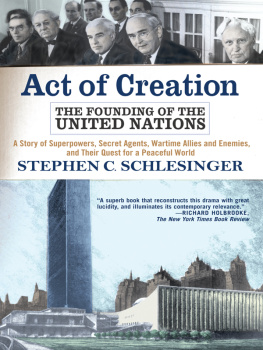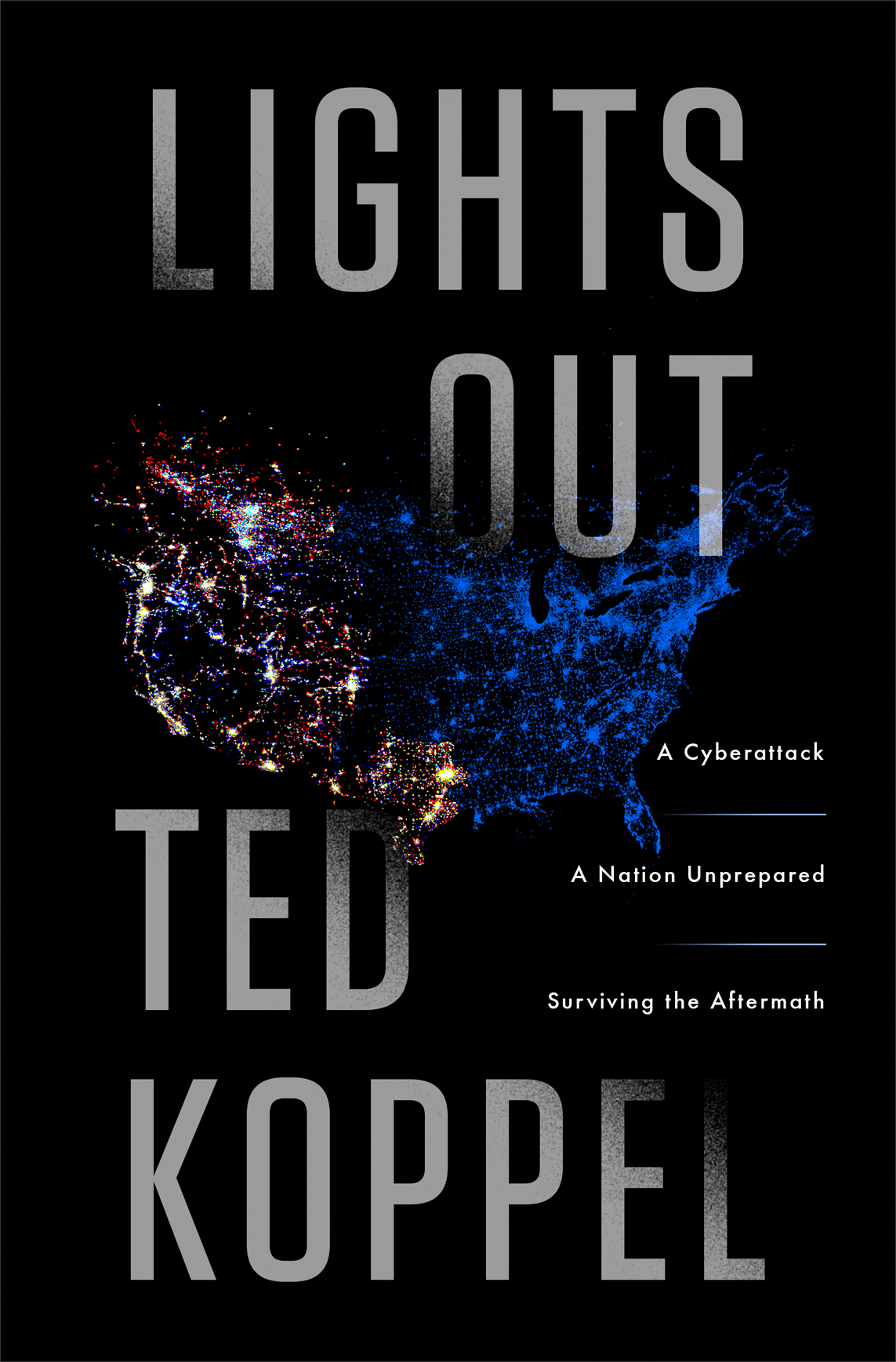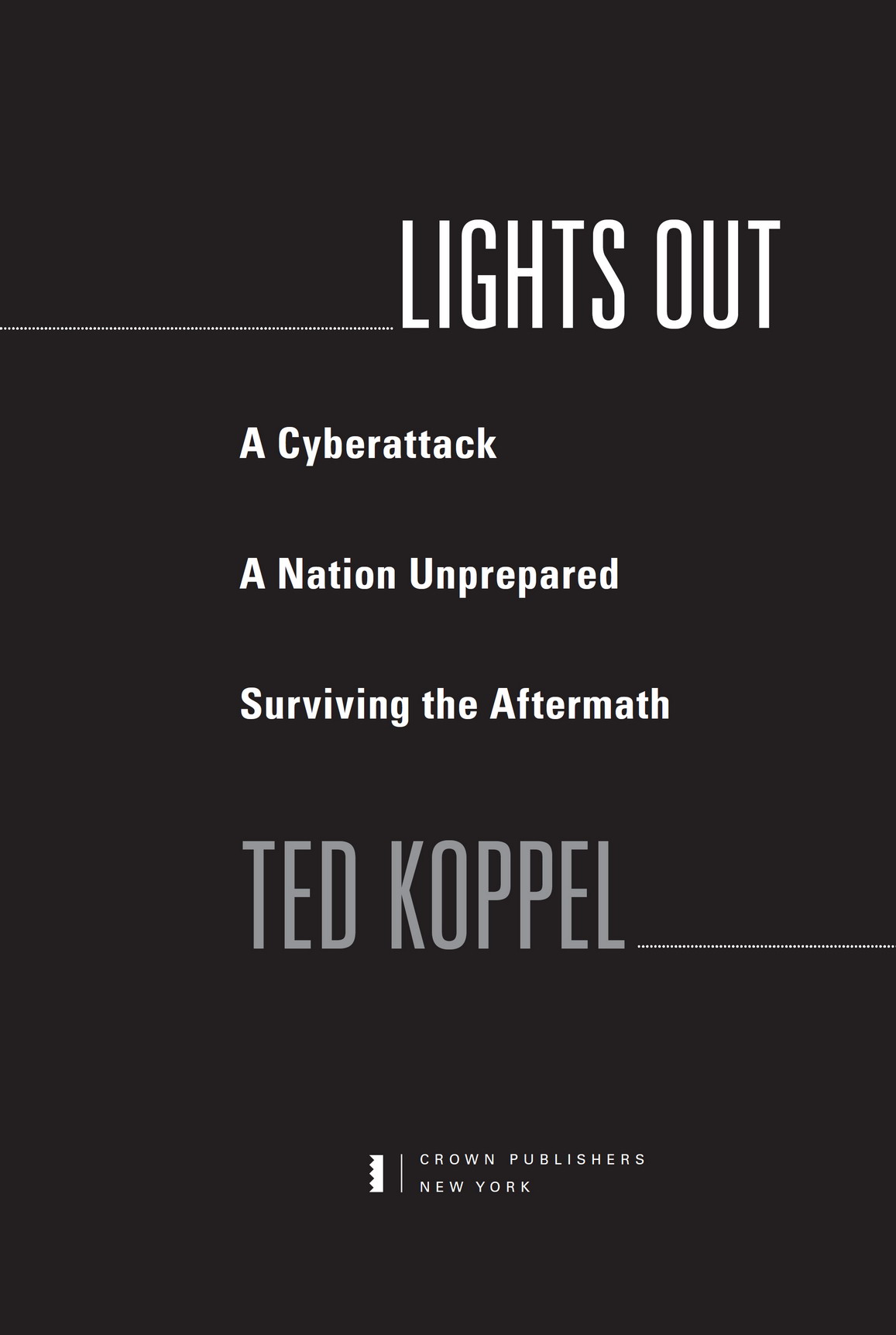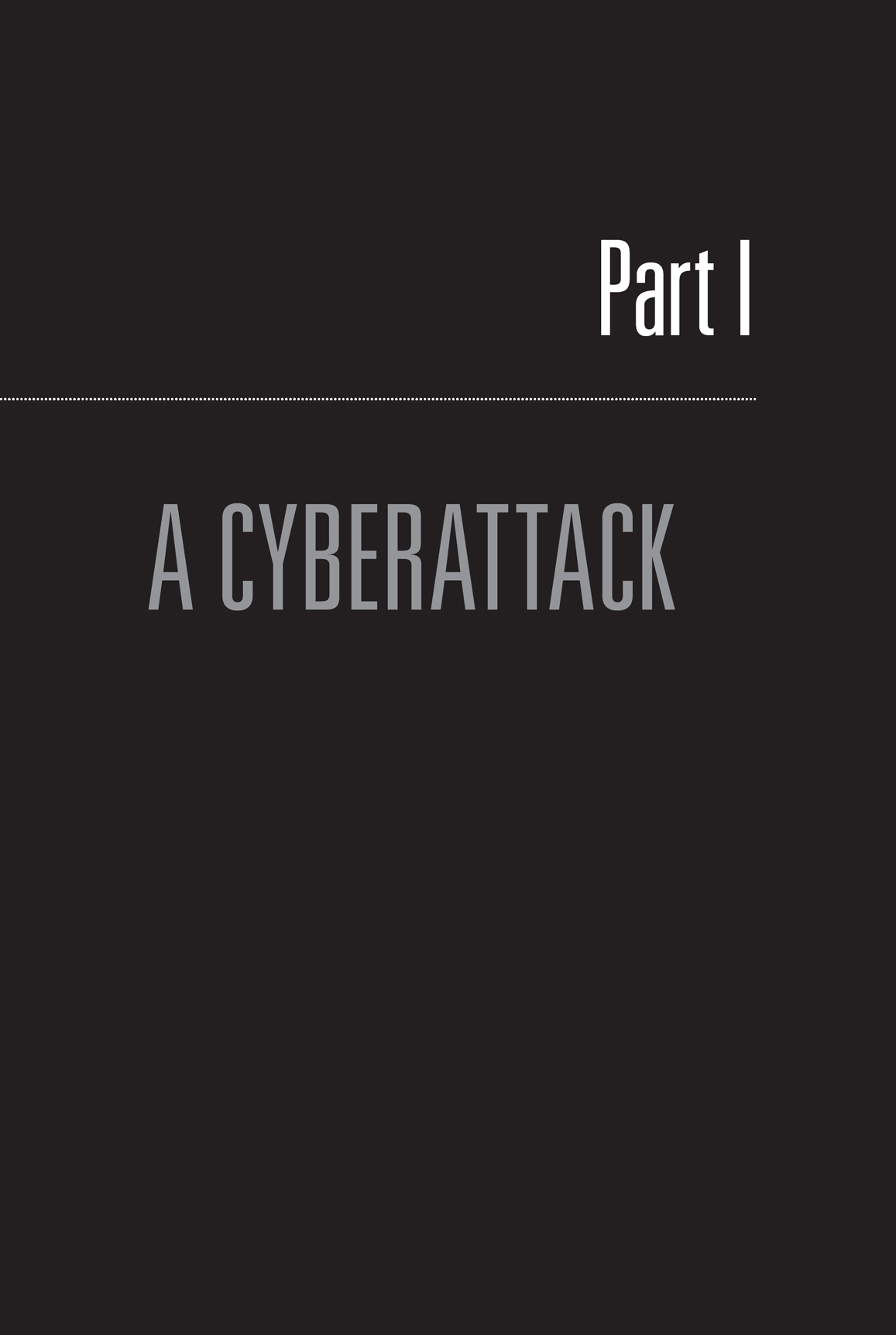Koppel - Lights out: a cyberattack, a nation unprepared, surviving the aftermath
Here you can read online Koppel - Lights out: a cyberattack, a nation unprepared, surviving the aftermath full text of the book (entire story) in english for free. Download pdf and epub, get meaning, cover and reviews about this ebook. City: United States, year: 2015, publisher: Crown Publishers, genre: Politics. Description of the work, (preface) as well as reviews are available. Best literature library LitArk.com created for fans of good reading and offers a wide selection of genres:
Romance novel
Science fiction
Adventure
Detective
Science
History
Home and family
Prose
Art
Politics
Computer
Non-fiction
Religion
Business
Children
Humor
Choose a favorite category and find really read worthwhile books. Enjoy immersion in the world of imagination, feel the emotions of the characters or learn something new for yourself, make an fascinating discovery.

Lights out: a cyberattack, a nation unprepared, surviving the aftermath: summary, description and annotation
We offer to read an annotation, description, summary or preface (depends on what the author of the book "Lights out: a cyberattack, a nation unprepared, surviving the aftermath" wrote himself). If you haven't found the necessary information about the book — write in the comments, we will try to find it.
Imagine a blackout lasting not days, but weeks or months. Tens of millions of people over several states are affected. For those without access to a generator, there is no running water, no sewage, no refrigeration or light. Food and medical supplies are dwindling. Devices we rely on have gone dark. Banks no longer function, looting is widespread, and law and order are being tested as never before.
It isnt just a scenario. A well-designed attack on just one of the nations three electric power grids could cripple much of our infrastructureand in the age of cyberwarfare, a laptop has become the only necessary weapon. Several nations hostile to the United States could launch such an assault at any time. In fact, as a former chief scientist of the NSA reveals, China and Russia have already penetrated the grid. And a cybersecurity advisor to President Obama believes that independent actorsfrom hacktivists to terroristshave the capability as well. Its not a question of if, says Centcom Commander General Lloyd Austin, its a question of when.
And yet, as Koppel makes clear, the federal government, while well prepared for natural disasters, has no plan for the aftermath of an attack on the power grid. The current Secretary of Homeland Security suggests keeping a battery-powered radio.
In the absence of a government plan, some individuals and communities have taken matters into their own hands. Among the nations estimated three million preppers, we meet one whose doomsday retreat includes a newly excavated three-acre lake, stocked with fish, and a Wyoming homesteader so self-sufficient that he crafted the thousands of adobe bricks in his house by hand. We also see the unrivaled disaster preparedness of the Mormon church, with its enormous storehouses, high-tech dairies, orchards, and proprietary trucking company the fruits of a long tradition of anticipating the worst. But how, Koppel asks, will ordinary civilians survive?
With urgency and authority, one of our most renowned journalists examines a threat unique to our time and evaluates potential ways to prepare for a catastrophe that is all but inevitable
Koppel: author's other books
Who wrote Lights out: a cyberattack, a nation unprepared, surviving the aftermath? Find out the surname, the name of the author of the book and a list of all author's works by series.


